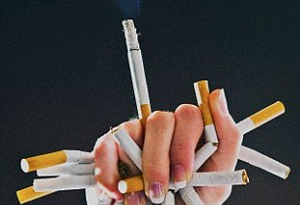 Most smokers say they want to quit and many will make a New Year’s Resolution to quit in 2014. If this is your year to quit, the American Lung Association (ALA) offers five tips to help you along the way:
Most smokers say they want to quit and many will make a New Year’s Resolution to quit in 2014. If this is your year to quit, the American Lung Association (ALA) offers five tips to help you along the way:
1. Learn from past experiences. Most smokers have tried to quit in the past and sometimes people get discouraged thinking about previous attempts. Those experiences were necessary steps on the road to future success. Think about what helped you during those tries and what you’ll do differently in your next quit attempt.
2. You don’t have to quit alone. Telling friends that you’re trying to quit and enlisting their support will help ease the process. Expert help is available from the American Lung Association and other groups. Friends who also smoke may even join you in trying to quit!
3. Medication can help, if you know what to do. The seven FDA-approved medications (like nicotine patches or gum) really do help smokers quit. Most folks don’t use them correctly so be sure to follow the directions!
4. It’s never too late to quit. While it’s best to quit smoking as early as possible, quitting smoking at any age will enhance the length and quality of your life. You’ll also save money and avoid the hassle of going outside in the cold to smoke.
5. Every smoker can quit. The ALA said each person needs to find the right combination of techniques that will for them, and above all, they need to keep trying.





Comments
Add new comment